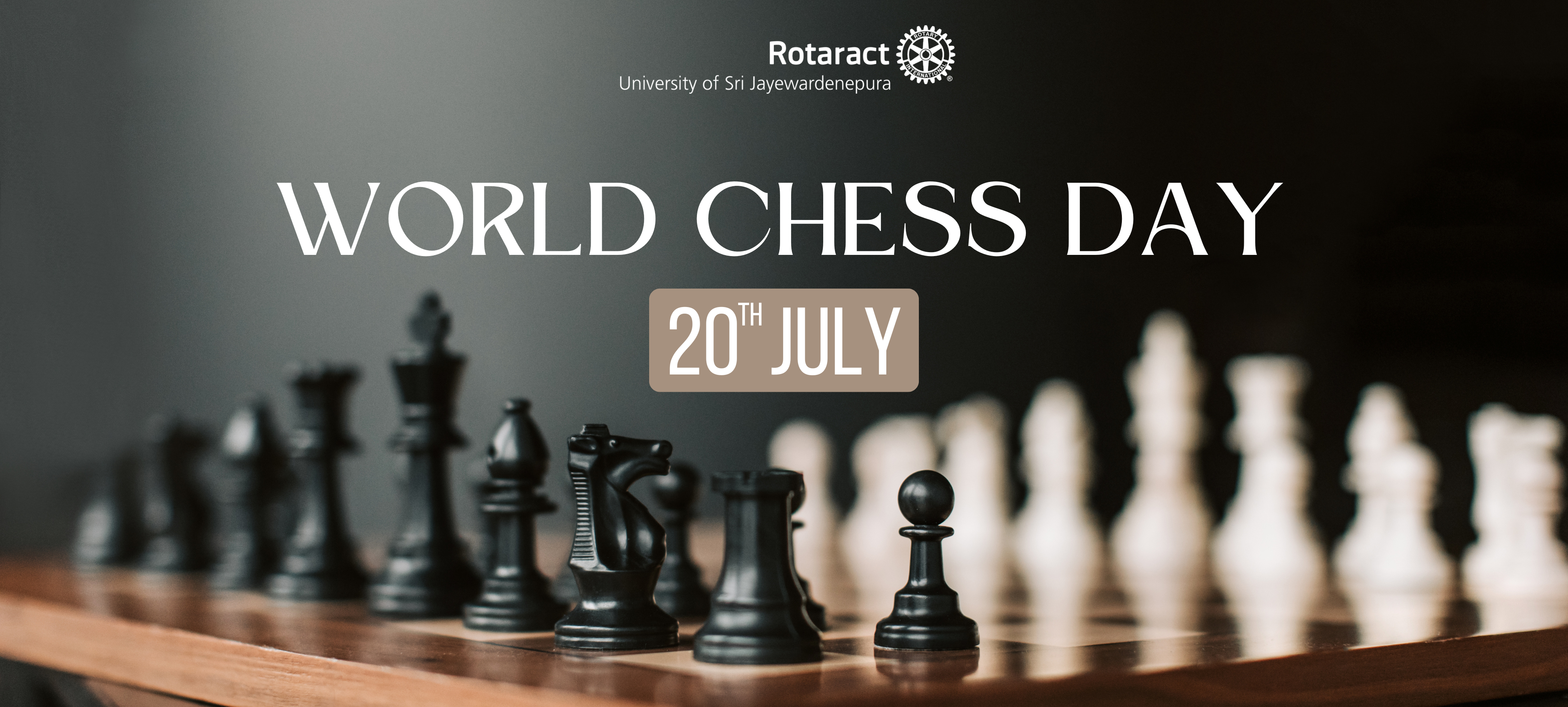Written by Rtr. Sandali Mendis
You see two people, sitting across from each other, staring intently at a checkered board, with 16 pieces each- and it is evident to you right away that this is no ordinary game. This, dear reader, is a mind game- and one of the most incredible of the cold-war-battled-sitting-down type at that! And so, it’s all in their heads, but as checkmate strikes- the battle ends, as tactfully as it began- and suddenly it dawns on us- aren’t we all pawns in this chess game of life? Food for thought, dear reader, food for thought.
World Chess Day, celebrated annually on July 20th, commemorates the founding of the International Chess Federation (FIDE) in 1924. Chess, often referred to as the “Game of Kings,” is a timeless strategic game that has captivated minds for centuries. Its cultural impact has been profound, extending beyond the chessboard into literature, film, and television. Originating in northern India in the 6th century and spread to Persia, where it was known as “shatranj”. The game evolved significantly when it reached Europe in the Middle Ages, eventually leading to the modern version we recognize today. The basic principles of chess—strategic planning, foresight, and tactical skill—have remained constant, making it a game that transcends time and geography.
Speaking of the ability of Chess to spreading Its cultural impact has been profound, extending beyond the chessboard into literature, film, and television. “The Queen’s Gambit,” a Netflix series released in 2020, has played a significant role in popularizing chess in recent years. Based on the 1983 novel by Walter Tevis, the series follows the life of fictional chess prodigy Beth Harmon, which highlights not only the intricacies of chess but also the personal struggles of its characters. Beth’s journey is marked by her battles with addiction and the challenges of being a female chess player in a male-dominated field. Her story has resonated with many, inspiring a new generation to take up the game. The show’s depiction of chess tournaments, the psychological depth of the game, and the glamorous yet challenging life of a chess grandmaster have all contributed to a surge in chess’s popularity.

Remnants of memories of my childhood revolving around my grandmother and her uncanny ability to beat anyone and everyone who would sit across from her to play a game of Chess, reminded me of the way I tried- and soon learnt to play with the pieces using them as an equivalent of playing with Barbie dolls! As time went by, my awe grew for the people who played Chess, for it was not just a mere moving of pieces. It was strategy. And now, it is a powerful educational tool. Studies have shown that playing chess can improve cognitive abilities such as memory, problem-solving skills, and concentration. It also teaches important life skills, including patience, strategic thinking, and the ability to plan ahead. Research indicates that regular chess playing can increase IQ scores, improve spatial skills, and even protect against dementia in older adults. The game requires players to think several moves ahead, anticipate their opponent’s strategies, and adapt to changing circumstances, all of which foster critical thinking and mental agility.
Chess is globally recognized, and international tournaments, such as the Chess Olympiad and the World Chess Championship, exemplify the global nature of the game. Players from different countries compete, share ideas, and build friendships, promoting international understanding and cooperation. The rise of online chess via mobile games and online platforms further demonstrated the game’s adaptability and enduring appeal. Notable names such as Wilhelm Steinitz, Garry Kasparov, Magnus Carlsen & Judit Polgár are popular and legendary in the field of Chess to be a few of the best players in the history of Chess.

World Chess Day is a celebration of a game that has fascinated and challenged humanity for centuries. Whether you are a seasoned grandmaster or a novice player, chess offers endless opportunities for growth and enjoyment. The resurgence of interest in chess, fueled by cultural phenomena like “The Queen’s Gambit,” highlights the game’s enduring relevance and universal appeal. As we celebrate this day, let us remember the rich history of chess, the cognitive and educational benefits it offers, and its unique ability to bring people together from all corners of the globe.



0 Comments